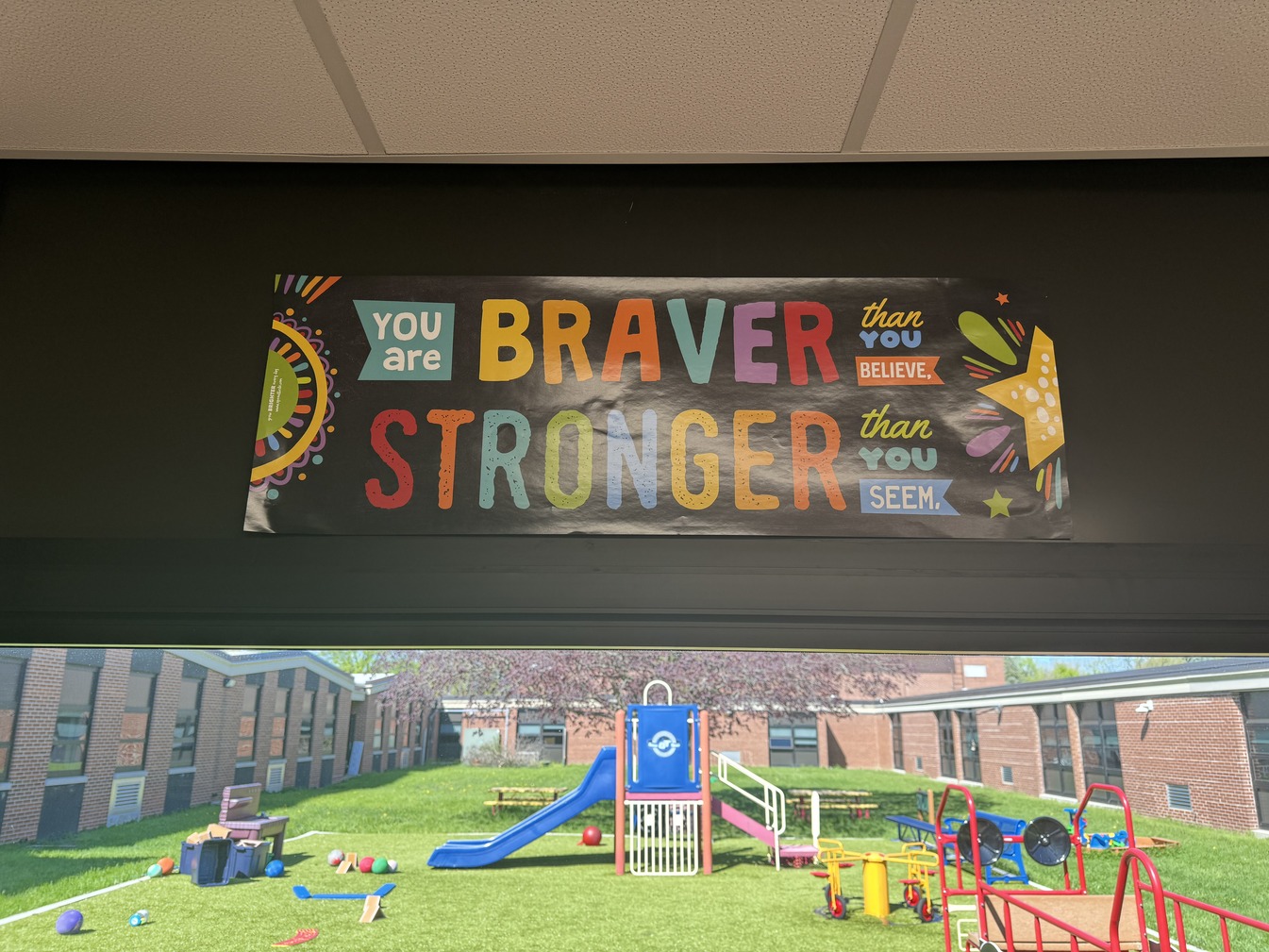
by Sydney Leyerle, Reilly Gaunt, Bryce Crossman, Abby Harvey, Nick Windsor, Kenzie Ogden, Coleton Pratt, Brain Weah, Isaac Wolf, and Kennedy Conger
State Testing
Third graders at the local elementary schools in Marion have been going through the process of standardized testing over the last few weeks.
Students throughout the state of Indiana have to take multiple standardized tests throughout the school year. These tests, the ILEARN and IREAD, are designed to tests students in English Language Arts, math, and reading.
To help prepare students for the tests, some schools have recently switched their curriculum to the IREADY program.
The Preparations
Lorena Pearson, a third-grade teacher at Lakeview Christian School, said the school switched the curriculum to the IREADY program five years ago. Since that switch, she said she has seen an increase in higher test scores.
The IREADY program is designed to contain concepts that will likely be on the IREAD or ILEARN tests so that students feel more prepared when those tests come around. If the curriculum is followed, Pearson said she doesn’t have to do much review for the students to be prepared for the tests.
“I basically don’t do any extra prepping other than the constant teaching of the provided curriculum,” Pearson said. “But then just maybe the day before I might review types of comprehension things that we’re looking for, such as main idea and supporting details, inferences, might hit on what those terminology, those words that may appear within their testing, what that might mean to the student.”
Lakeview first began to use the IREADY curriculum to check their student’s progress. However, Rebecca Shrontz, the Head of School at Lakeview, said that after a while she realized that the program was much more rigorous and did a better job preparing students for the test than their former curriculum.
Despite the preparation, Shrontz said many students still deal with a lot of pressure and stress when it comes to taking the tests.
“I think there’s definitely students that put more pressure on themselves than others,” Shrontz said. “So there’s definitely students that come in and they’re really stressed and worried about that.”
Shrontz said the IREAD recently switched to having no time limit, which has helped some students feel less pressure while they are taking it. However, some pressure remains as the students know they must pass the test.
State Testing Data
In the Class
Students who don’t pass the test during the regular school year are required to go to summer school, where they will be retested. The goal is for students to pass the IREAD before they move on to fourth grade.
Mercedes Smith, a social worker at Frances Slocum said a new law will soon be going into effect that requires all students to have passed the IREAD before they are allowed to move on to fourth grade. Any students who don’t pass the test before their fourth-grade year will be required to redo third grade.
This high level of pressure is felt by many students, causing the week of testing to be one of the most difficult for students and teachers alike.
“I can speak on this week being one of the most difficult weeks that I’ve experienced in my last four months as we’ve seen increased behaviors, increased suspensions,” Ryan Hudson, a student teacher at Frances Slocum, said. “And if you ask the students why, they’re saying we’re not getting enough sleep, and we’re stressed and there’s just this off energy in the room and you can definitely just tell there’s tension, and it’s real.”
The amount of testing that is required for third-grade students can be stressful on parents as well. Pearson said she does her best to not only prepare the students, but also prepare the parents.
“Some parents who have not had a sibling already come through the third grade, is somewhat shocked at how much testing third graders do,” Lorena Pearson said. “I make sure that parents are well aware of that in our October parent teacher conference. Try to ease their mind about it and try to encourage them to encourage their kid to read at home as much as possible, that reading does make a difference.”
Kids Hope
In the middle of state testing for elementary schoolers across Indiana, mentoring programs bring much-needed help both socially and academically for the students.

Kids Hope is a nationally known program, but at Frances Slocum Elementary, the program goes through College Wesleyan Church. As a faith-based program, most of the mentors either attend College Wesleyan or are IWU students.
Vickie Conrad runs the Kids Hope connection between College Wesleyan Church and Frances Slocum Elementary. She works as the bridge between the school and the church by helping bring mentors to the school and parents and kids to the church.
Conrad said that herself, teachers and parents have all noticed differences in students when they have mentors.
“When a child receives a mentor, it helps the social/emotional learning of that child. They have a faithful friend who will show up for them,” Conrad said. “So some of the things that we have seen improved is overall behavior – we see less referrals to the office for behavior, we see an increase in overall attendance in school, they show up to school more often when they have a mentor, also we see academic improvement.”
65 mentors come to Frances Slocum for one hour a week to provide friendship and community to the children. The mentors bring some academic support, but interpersonal support is the main goal.
“Academically, I would say it’s really supported their growth. And it’s also just knowing that somebody has their back in the community,” Frances Slocum Principal Rianne Aguilar said. “At one point we were the lowest (test scores) in the state and now we’ve grown and gotten off that list. In the last year we’ve grown over 20% which is huge and not really heard of, and I would say our mentoring program is a part of that.”
The Effects of Mentoring
The mentors often provide an adult-figure to students who have lost someone in their lives and need an advocate and friend.
In the middle of testing season, the children feel more stressed and act out more often. Ryan Hudson, a student teacher at Frances Slocum, said that during testing season he sees increased behaviors and increased suspensions in his students. Having a mentor to help them navigate this time is paramount.
“I think for some of our students, their mentor showing up throughout the week is the most important thing for them,” Ryan Hudson said.

Alivia Bell, a second-grade teacher at Frances Slocum said she recognizes the joy that these mentors bring into the student’s lives, especially during testing season.
“I know some mentors like to hype their kids up and they’re a big hype girl/hype man for them,” Bell said.
Frances Slocum Elementary serves the poorest parts of Marion and has often yielded poor test results. The children with mentors often need another figure in their lives to help them have something to be excited about.
“But for our students, potentially the most consistent piece of their week for some of them is that mentor showing up. So I feel like, for testing, when our schedules are changing, when everything around them seems different, and a lot of them are going through challenging changes at home and transitions,” Ryan Hudson said. “That mentor, the Kids Hope partnership between College Wesleyan and lWU, that’s the most constant part of their life. And I can see the biggest impact from those relationships.”
At Lakeview Christian School, there is no Kids Hope, but they have tutoring options and other staff who do everything to help the children even more outside of school. Any form of mentoring whether through Kids Hope or just dedicated people wanting to aid the children helps these kids immensely.
“Students are more successful if they have a mentor showing up for them. I think all across the board there is success,” Vickie Conrad said. “There will be success in their overall conflict resolution in the classroom, their overall social interaction with students but also their academics improve if they have a positive adult role model like a mentor.”
Conclusion
Preparation is important to the teachers, but no matter how much preparation they do it can still be a stressful time. Alivia Bell, a second-grade teacher at Frances Slocum, said she believes they do a good job of preparing the students for the tests, but testing still makes her and her students nervous.
“I feel like we do prepare them well, when we walk around the room and we’re watching them take it, I feel like they’re well prepared for it,” Alivia Bell said. “But the kids do put a lot of stress and anxiety on themselves.”
